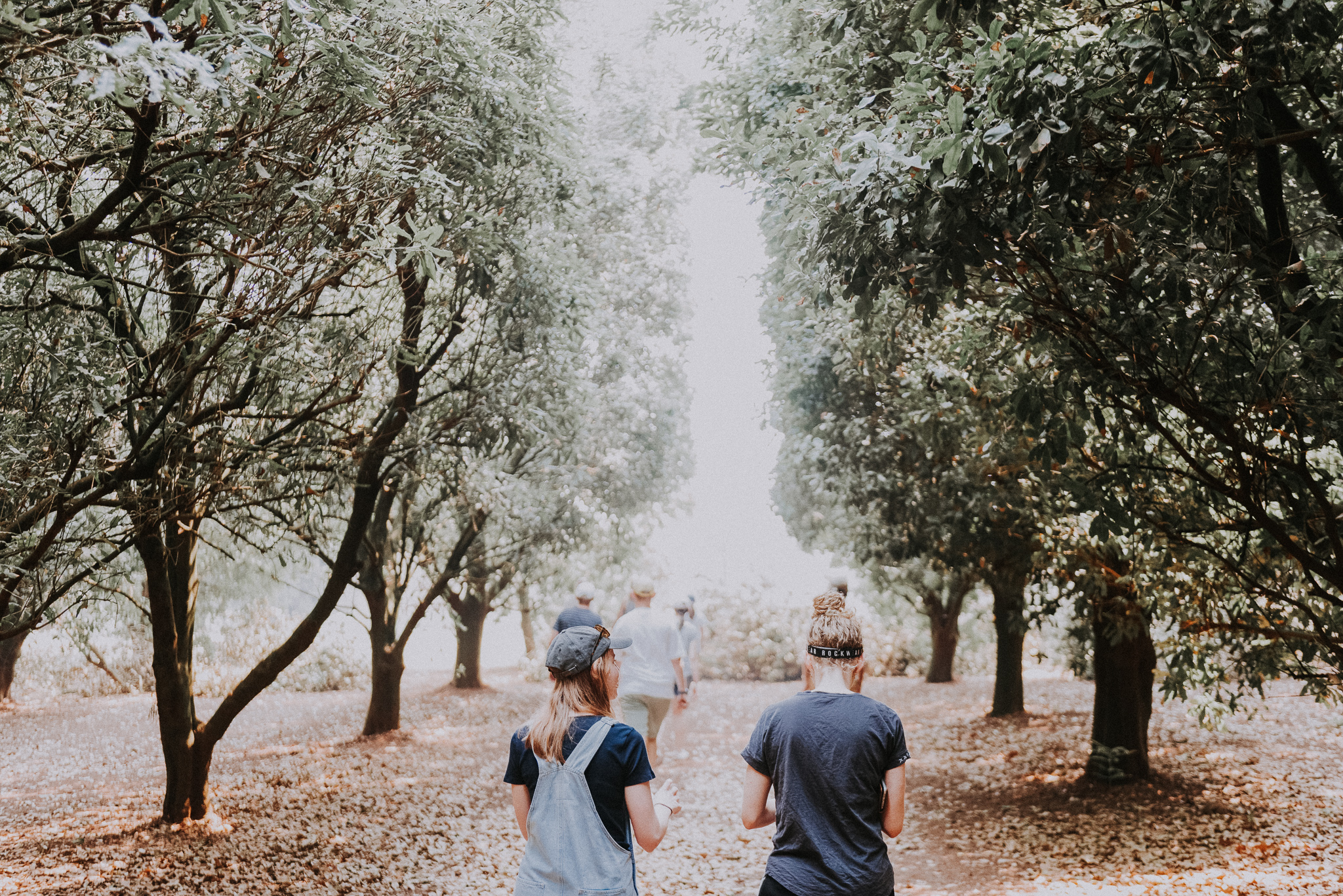
In Community for the Community
How surrounding yourself with community can boost your mental health
When do we know we are well? The World Health Organisation defines health as a ‘state of complete physical, mental and social well-being and not merely the absence of disease or infirmity and as a resource for living a full life.’ We’d all ascribe to that, but we all know that maintaining health needs constant attention and we may all have different starting points. Research highlights that where we are born and the genetic imprint we receive from our parents, all influence us before we even begin our walk into life.
Words: Read: 5 - 10 mins Published: 30 March 2021
We know the rules of health: sleep well, eat healthily, drink lots of water, exercise regularly, don’t smoke, get a flu shot, etc. However, when it comes to mental health, we can feel we don’t quite have the same control. The holiday season in particular, can be one that sparks feelings of anxiety and loneliness in people for a whole range of reasons. Anxiety is now described as the most common mental illness and it’s thought at least 30 per cent of the population are experiencing this mental health problem. It is prevalent amongst our youth who are regularly ‘overwhelmed by anxiety’.
The challenges they face can be deemed too hard for them and many of the ways to prove their adulthood are self-destructive such as drugs, sex, or alcohol. With the childhood years being eroded faster and faster, many are often simply not developmentally ready for such challenges.
Anxiety is the apprehensive anticipation of future danger or misfortune accompanied by a feeling of worry, distress and or somatic symptoms of tension.
The focus of anticipated danger may be internal or external. (Diagnostic and Statistical Manuel of Mental Disorder States)
Anxiety differs from depression, in that anxiety is about feelings of being threatened or vulnerable somehow and our reactions rise to cope with that. Depression, however, is characterised by a sense of sadness that doesn’t lift, like the colour has run out of the photo and you are left with a black and white world. It’s often described as the black dog, which is a cloud hanging over your life.
Good mental health is characterised by a person’s ability to fulfil a number of key functions and activities, including the ability to learn, the ability to feel, express and manage a range of positive and negative emotions and the ability to form and maintain good relationships with others.
One of the first signs of mental health deteriorating is the desire to withdraw rather than connect. It is well established now that social connection uplifts a person’s mental health. The Genesis 2:18 line of “It is not good for humankind to be alone” has more meaning than just the male and female connection. We need interpersonal relationships – to chat, to belong, to share, to laugh, and to cry.
The beauty of a functioning church family is that all of that happens on a Sunday in Riverlife, in and out of the foyer! The two top predictors to a longer life are who your close relationships are and are they people you can call on for a loan, or if you’re having an existential crisis?
The other predictor is social integration i.e. how much contact do you have with people as you move throughout your day? Do you chat with a barista, postman or bus driver or do you find yourself alone in your own headspace most of the time? Current statistics suggest we spend more time online than sleeping and that digital relationships have replaced physical ones – does it make a difference? The short answer is yes! While it may appear that you are connected through numerous digital platforms, face-to-face contact with an actual person releases a cascade of neurotransmitters that act like a vaccine in your system, releasing oxytocin and lowering cortisol, which in turn increases trust! If you want to dive more into that topic, listen so Susan Pinker’s Ted Talks on living a longer life. Isn’t it interesting that the secular world is discovering concepts that in church are experienced daily? Our community life together reaches in to restore us and reaches out to restore others.
Having a spiritual perspective on life gives us resources we may not always recognise. Community is a huge one, offering connection to God and to others. We can pray for ourselves and others, we can learn about who we are and our identity in Christ and help our body, mind and spirit align with our identity as loved by God and bought at a price. When these truths can sink into our beings, they change us in a positive way. It may not heal everything immediately, but it gives us an anchor in our beings that brings resilience to cope. Resilience is a word the secular therapeutic world is discovering we all need if we are to make our way in this world as healthily as possible.
Just as we look after our bodily needs, we need to look after our mental health needs. And as the airlines remind us, once we have fitted our own oxygen masks, we can then turn to those around us and help them with theirs. We can be on the lookout for those who may be struggling to deal with life but not able to talk about it. Afterall, if we are a healthily functioning body of Christ, we will enjoy our journey together with all the ups and downs.
In looking particularly at anxiety, there is a common misunderstanding that we can live without anxiety altogether. This is not the case. Anxiety is not always a dysfunction but a protective mechanism that is necessary for living. To have an inactive limbic system would cause a person significant suffering. We worry that anxiety is a sin, that verses such as ‘do not be anxious’ and ‘cast all your care on Him’ can feel like a condemnation when in actual fact they are there to offer us comfort. They are more related to worry and concrete concerns such as food, clothes etc rather than the sort of diffuse instinctual anxiety that plagues most anxiety sufferers.
Psalm 56:3 says ‘When I am afraid, I will put my trust in you’. 2 Corinthians 5:7 talks of living by faith and not by sight. Anxiety and trust seem to coexist. One can have a level of anxiety on a sight level whilst living a life of faith and trusting in the promises of God. It doesn’t always follow that having faith in God is demonstrated by a lack of anxiety.
Is anxiety a reliable measure of a person’s trust? No! Does God care about your anxiety and want you to trust Him despite what your anxieties are telling you? Yes, He does!
So, talk to your friends, make new friends, share your burdens with each other, pray with one another. In doing so, we then create a culture in our community of openness and healing that both we and our wider community needs and is desperately looking for.
What to do if You’re Feeling Anxious:
o Reach out to a friend and ask to catch up
o Find a community activity to engage in
o Take a walk in nature – it’s God’s first Bible and speaks to us all!
o Water is therapeutic and tactile – showers, waterfalls, the beach
o Drink green tea (yes really)
o Make sure you’re getting proper sleep, exercise and nutrition
o Contact a Riverlife Pastor for a chat
o Book a ministry session via the Riverlife LifeCentre
o Ask for our list of psychologists and counsellors
Check out our recent message Rejoice Always
If you’re in a crisis and need immediate help, please call Beyond Blue on 1300 22 4636, visit beyondblue.org.au or blackdoginstitute.org.au. For more information on anxiety from a Christian perspective, check out these authors: • John Townsend • Dan B Allender • Larry Crabb
